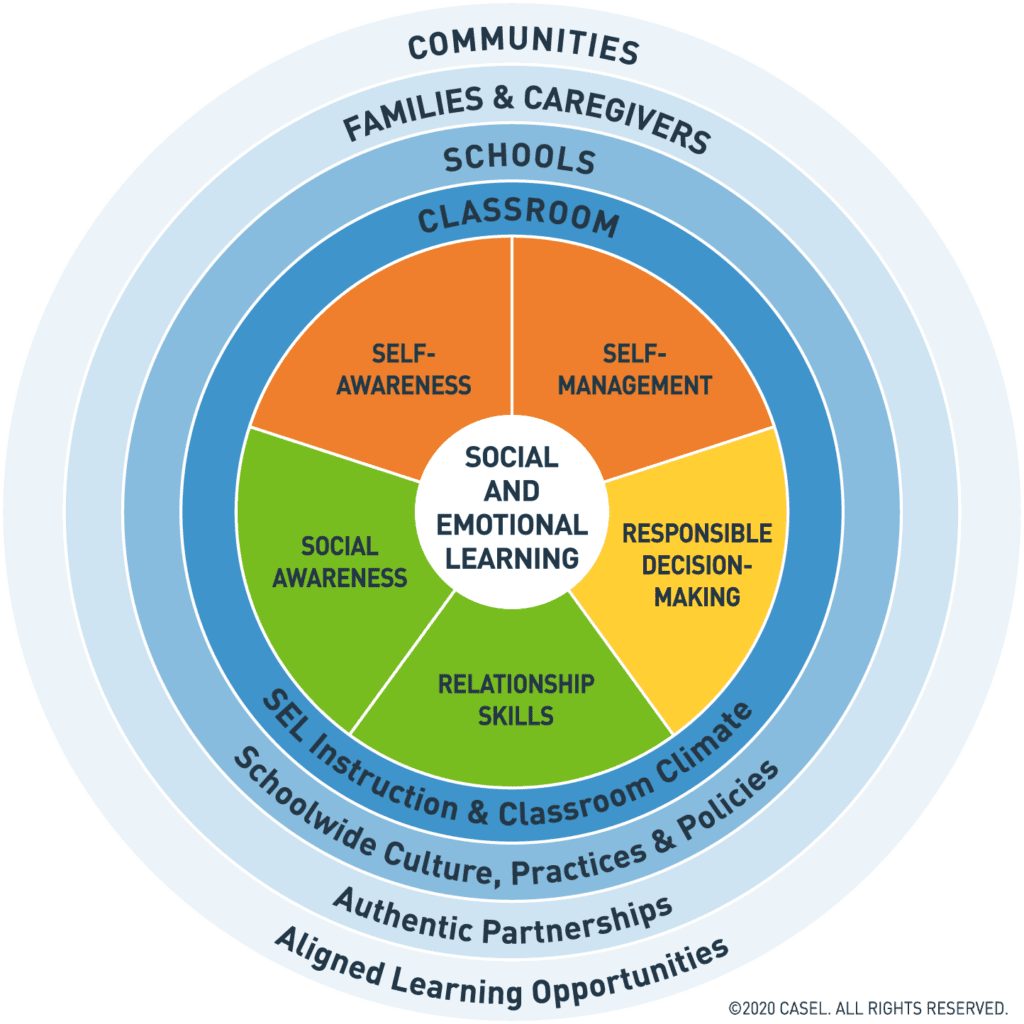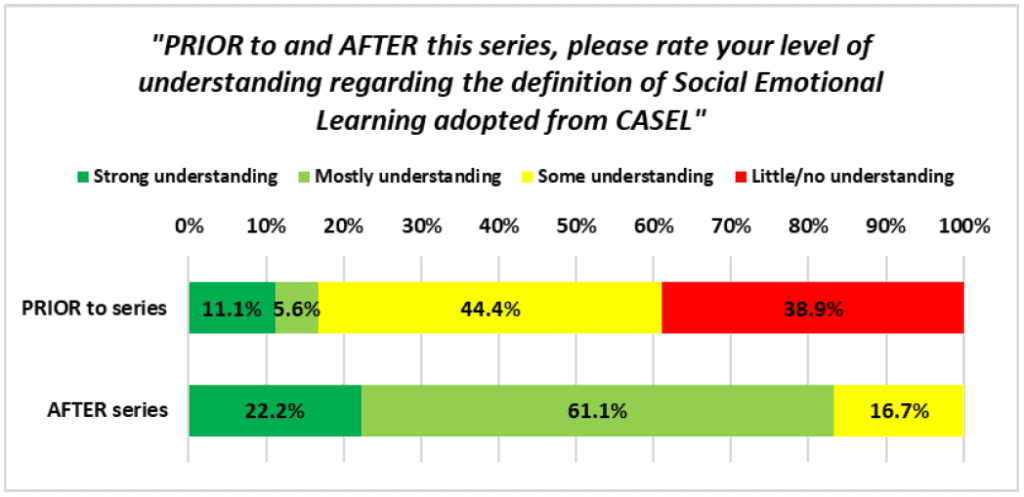In October of 2021, three teams (24 individuals) from Flasher, Midway, and Zeeland made the commitment as a leadership team to work towards creating the conditions for optimizing social-emotional learning (SEL) through the application of the ND Multi-Tier System of Supports (NDMTSS) Essential Components and continuous improvement.
This helped me gain a better understanding of how to integrate SEL into classroom instruction that will lead to improved student behavior and academic outcome."
(Teacher – Flasher Public School)
Prior to attending, I assumed SEL was more of a specific curriculum. Now I understand it is both an ongoing process and can be a curriculum as part of that process.
(Teacher – Zeeland Public School)

This completely virtual experience allowed for four, two-hour virtual sessions + two one-hour coaching calls per team. These coaching calls allowed for teams to discuss their personal status, successes, barriers, etc. with the project leads: Central Regional Education Association’s (CREA) Lyndsi Engstrom and South East Education Cooperative’s (SEEC) Keely Ihry.
Throughout the series, teams investigated the four approaches to SEL, evidence-based programs / practices supporting SEL, and translating current educational research to practice in an attempt to impact outcomes for all students is the focus. After their final coaching calls in early January 2022, teams were able to walk away with
Check out the N.D. SEL Network website to see member profiles from Minot, Napoleon, Wilton, Valley City, Turtle Mountain Community High School, and Grand Forks that include:
As participants began the series they focused on understanding the definition of SEL adapted from CASEL which is, “SEL is the process through which all young people and adults acquire and apply the knowledge, skills, and attitudes to develop healthy identities, manage emotions and achieve personal and collective goals, feel and show empathy for others, establish and maintain supportive relationships, and make responsible and caring decisions.”
Participant knowledge increased dramatically as shown below in our pre/post data with 83.3% reporting being at least “mostly understanding” and zero participants reporting “little/no understanding” regarding the definition of SEL at the end of the series. They were also asked to rate their level of understanding of the CASEL competencies and associated inidicators/skills both before and after the series. A similar trend was found with 16.7% reporting being at lease “mostly understanding” prior to the series, and 72.2% after the series. Additionally, 44.4% stated “little/no understanding” prior and 0% after the series.


As the sessions moved forward into focusing on the four approaches to SEL, participants showed growth in their understanding across each of the four – in fact, less than 15% of those responding to the evaluation stated they were “mostly understanding” of each prior compared to after when each of the four had at least 50% report that same level.
An item to note as you look at the graph below are the gains for “Explicit Instruction of SEL” and “Integration of SEL into Academic Curricula”, in which each had a majority of respondents report having “little/no understanding” prior to the series, and 0% for each after the series!
As the series came to a close the teams were tasked to begin working on developing a draft of a comprehensive plan for implementing system SEL in their school/district. Participants were then prompted to identify if the learning series provided their team with sufficient information to do so. Half of the respondents reported that it provided “All” or “Most” of the information they needed. Respondents also noted that 44.4% have “Most” of the skills necessary and 27.8% indicated having “Some” of the skills whiel the remaining 27.8% of those responding indicated that their plan had not been developed/finalized.